
AUGUST 2023 NEWSLETTER
The newsletter of the Feinberg School of Medicine Research Office
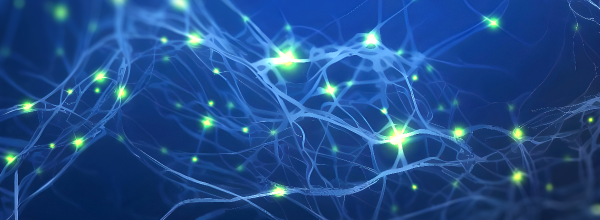 |
Advancing Our Understanding Behind the Mechanisms of Pain |
|
Today, more than 50 million adults in the U.S. suffer from chronic pain — pain lasting longer than three months — and is the most common reason why people seek medical attention, according to the Centers for Disease Control and Prevention (CDC). However, recent breakthroughs made by investigators at Northwestern’s Center for Translational Pain Research are moving the field forward and suggest that the brain’s emotional circuity plays a causal role in chronic pain. |
 |
Chandel Receives Prestigious Lurie Prize |
|
Navdeep Chandel, PhD, the David W. Cugell, MD, Professor of Medicine in the Division of Pulmonary and Critical Care and of Biochemistry and Molecular Genetics, has been named a recipient of the 2023 Lurie Prize in Biomedical Sciences by the Foundation for the National Institutes of Health (FNIH). |
Faculty ProfileImproving the Diagnosis and Treatment Related to Maternal-Child Health OutcomesJeffery Goldstein, MD, PhD, is an assistant professor of Pathology in the Divisions of Perinatal Pathology and Autopsy. For his research and clinical practice, he employs machine learning and bioinformatics to improve the health of pregnant women and their children, primarily through improved diagnosis and fundamental understanding of the placenta. |

|
Staff ProfileDeveloping Center Resources to Support ResearchCarolyn Schafer, MPH, is the center administrator for the Center for Health Services and Outcomes Research at Feinberg’s Institute of Public Health and Medicine. |
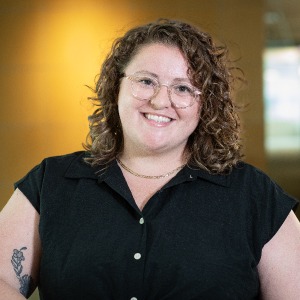
|
Student ProfileTranslating Insights from Datasets to Improve HealthEmily Stroup is a fifth-year PhD candidate in the Driskill Graduate Program. In the lab of Zhe Ji, PhD, assistant professor of Pharmacology and McCormick School of Engineering, Stroup combines her data and computational skills with medicine to develop deep learning models to better understand polyadenylation. |

|
Campus Events |
||||||||
|
Research in the NewsThe Washington Post, August 8 TIME, August 11 Washington Post, August 14 |
NUCATS CornerNUCATS Regulatory Team Provides Comprehensive Study Team SupportThe Regulatory Unit of the Center for Clinical Research (CCR) can assist investigators with meeting essential regulatory activities and provides training and general support to Feinberg research staff. Services include:
Please visit our new resource page, which includes newly added Regulatory Support Guidelines, for additional information. |
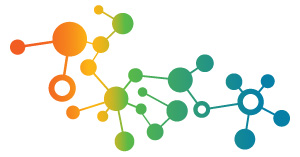
|
Sponsored ResearchTitle: Time to ATTAC: Adoptive Transfer of T cells Against gp100+ Cells to treat LAM
|
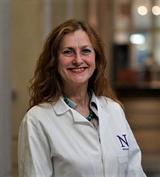
|
Sponsored ResearchTitle: The Physiology of Store-Operated Channels in the Nervous System
|

|
Breakthroughs PodcastPredicting Which Cancer Cells May Become Drug-Resistant with Yogesh Goyal, PhDTreating cancer has become increasingly difficult as cells develop resistance. Northwestern investigators have sought to address this issue on the cellular level through the development of a novel FateMap tool used to predict the future behavior of cancer cells before they are exposed to cancer-fighting drugs. In this episode, Yogesh Goyal, PhD, discusses his latest research, published in Nature, and how his lab is addressing complex problems through an interdisciplinary approach. |

|
New FacultyJoshua J. Ziarek, PhD, joined Feinberg on July 1 as associate professor of Pharmacology. His research interests are in the characterization of biomolecular interactions, the molecular mechanisms of allostery and the rational design of molecular therapeutics and tools with a long-standing interest in G protein-coupled receptors (GPCRs). Previously, Ziarek was assistant professor of Cellular and Molecular Biology at Indiana University. He did his postdoctoral training at Harvard Medical School and earned his PhD from the Medical College of Wisconsin. |

|
Galter LibraryThe Power of Open ScienceThe federal government defines open science as “the principle and practice of making research products and processes available to all, while respecting diverse cultures, maintaining security and privacy, and fostering collaborations, reproducibility, and equity.” We’ve worked to support this area of need at Galter with resources, training, and services to support the Feinberg community. Highlights include the Prism Repository, classes on data management, and Galter Guides on the NIH Public Access Policy and NIH Data Management Plans. |
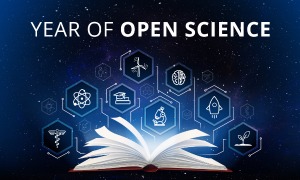
|
High Impact ResearchBrastianos PK, Twohy E, Geyer S, Gerstner ER, Kaufmann TJ, Tabrizi S, Kabat B, Thierauf J, Ruff MW, Bota DA, Reardon DA, Cohen AL, De La Fuente MI, Lesser GJ, Campian J, Agarwalla PK, Kumthekar P, Mann B, Vora S, Knopp M, Iafrate AJ, Curry WT, Jr., Cahill DP, Shih HA, Brown PD, Santagata S, Barker FG, 2nd, Galanis E. BRAF-MEK Inhibition in Newly Diagnosed Papillary Craniopharyngiomas. New England Journal of Medicine. 2023;389(2):118-126.
|
Featured CoreCenter for Advanced Microscopy and Nikon Imaging CenterThe Center for Advanced Microscopy (CAM) offers a variety of light and electron microscopy service, and provides Northwestern investigators access to cutting-edge imaging technologies and research expertise. CAM’s core services include:
|
NIH NewsStrengthening Integrity and Fairness in Peer Review Through New Required Trainings Beginning for the May 2024 council round, all reviewers will be required to complete trainings related to review integrity and bias awareness prior to serving on NIH peer review groups. These trainings build on NIH’s long-standing commitment to maintain integrity and fairness throughout the review process. In this new process, there are two training modules needed to be completed. Get the full details here. Using AI in Peer Review Is a Breach of Confidentiality AI has been brought to the forefront of the scientific community. However, using AI Reviewers are trusted and required to maintain confidentiality throughout the application review process. Thus, using AI to assist in peer review would involve a breach of confidentiality Ensuring confidentiality means that scientists will feel comfortable sharing their candid, well-designed and thorough research ideas with the NIH. Using AI absolutely violates the NIH peer review confidentiality expectations and is thus, not permitted. Visit the NIH website to learn more. |
Funding OpportunitiesSQI Launches Seed Funding Program to Spark Nanomedicine Research
More Resources |
Thank You For ReadingWe are testing an updated format for this newsletter. We welcome your feedback. Please share it with us via email. |
|
|
